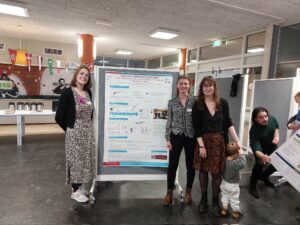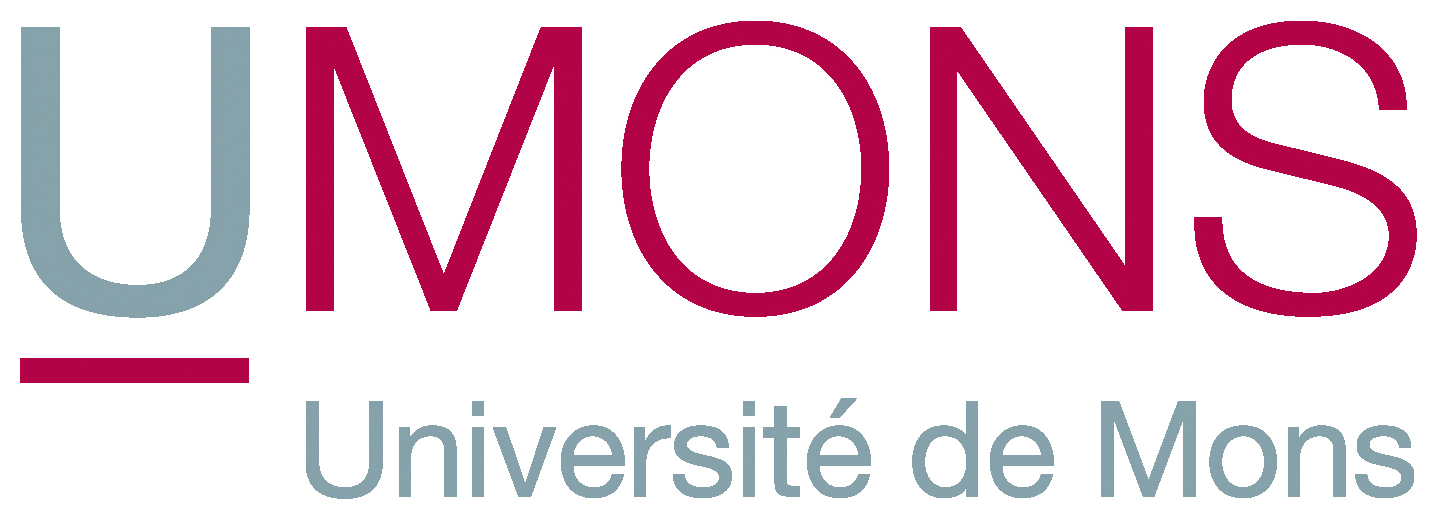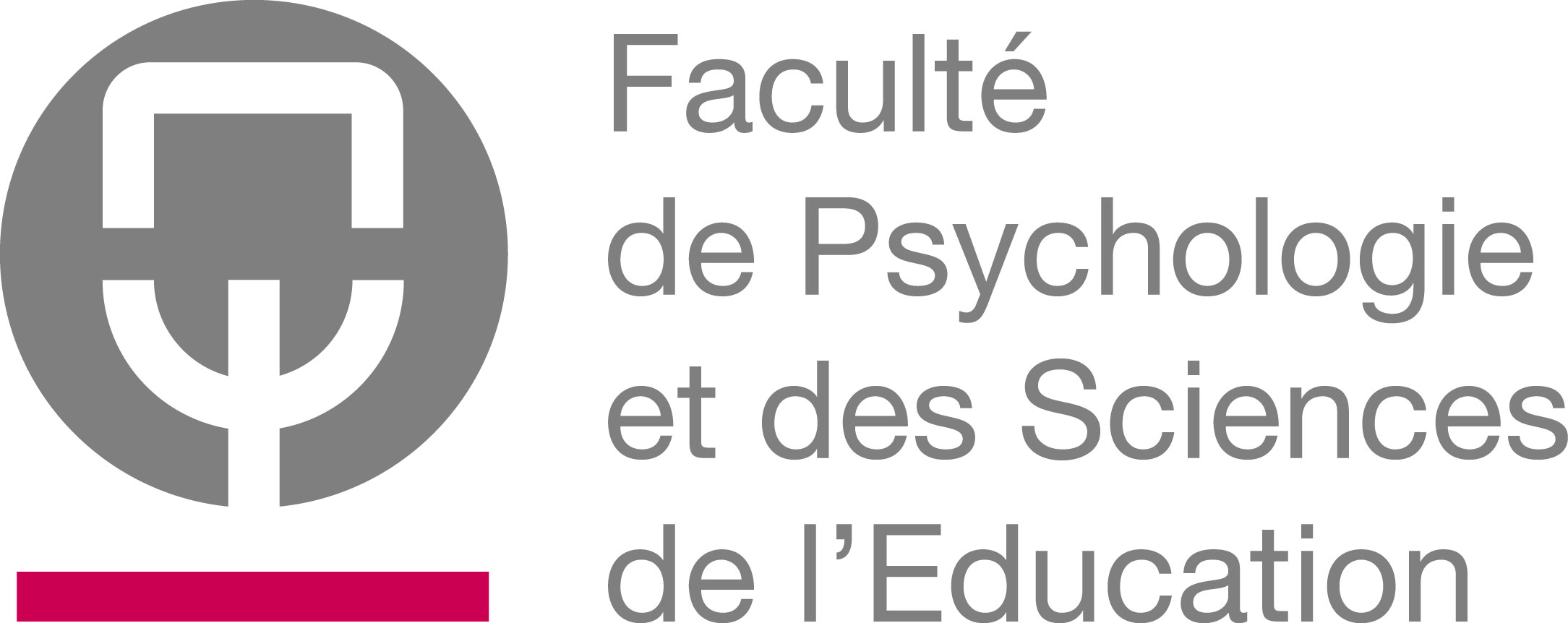
Le 16 novembre 2023, Marie Bocquillon, Laëtitia Delbart et Constance Coen ont présenté deux communications orales et un poster lors du congrès de la section européenne de l’Association for Positive Behavior Support (3rd PBS-Europe Network International Conference), qui s’est déroulé à Zwolle (Pays-Bas).
Marie Bocquillon a présenté une communication intitulée “Evaluation of Positive Behavior Support implementation in French-speaking Belgium: a case study” (Bocquillon, Baco & Delbart).
Abstract
In French-speaking Belgium, many teachers experience difficulties in establishing a serene classroom climate (Quittre et al., 2019). Students’ behavioral difficulties can have significant consequences for students (dropping out of school) and for teachers (leaving the profession). It is therefore essential to implement measures that have been shown to be effective, such as Positive Behavior Support (PBS) in schools.
However, research highlighting effective practices such as PBS is little known in French-speaking Belgium. The implementation of PBS in this context remains a challenge because of the great pedagogical freedom written in the Belgian Constitution. This means, among other things, that each school and teacher can choose the practices they want to implement in order to achieve the objectives of the curricula and to manage the behavior of the pupils (de Bouttemont, 2004).
Firstly, this proposal will summarize the work already carried out in French-speaking Belgium on PBS (Author A & Author B, 2022; Deltour, 2021; Deltour et al., 2022). Secondly, it will answer the following research question: with which fidelity do one French-speaking Belgian school implement PBS? This proposal will present the evaluation of the implementation of PBS in the playgrounds and the classrooms of a French-speaking Belgian primary school that called on our team to be trained in this system. To evaluate the implementation of PBS in these schools, the School-Wide Evaluation Tool (Horner et al., 2004) was used.
The results are currently under study and will be presented during the Symposium. The results will be compared with those of a previous study of PBS implementation in another French-speaking Belgian school (Author A and Author B, 2022), as well as with the international literature on the subject.
These results will help improve the training offered for further implementation of PBS in other French-speaking Belgian schools and in other European contexts.

Constance Coen a présenté une communication intitulée “Evaluating the effectiveness of a Positive Behavior Support training program in French-speaking Belgium: methodological elements” (Coen, Bocquillon, Baco, Delbart & Demeuse).
Abstract
In French-speaking Belgium, and throughout the world, managing student behavior is a major challenge for teachers (e.g. Dicke et al., 2015; Dufour, 2010). In-service teacher training in effective behavior management systems such as Positive Behavior Support (PBS) represents one of the major levers for improving this situation (e.g. Guskey, 2000; Richard et al., 2017). However, PBS is little known in French-speaking Belgium (Author B and Author C), and most studies on in-service training are based solely on the assessment of participants’ satisfaction (Duchaine et al., 2021). It is therefore necessary to design PBS training programs for schools that request them, and to evaluate the effectiveness of these training programs on the basis of various indicators and not just on the basis of participants’ satisfaction. This paper therefore presents the methodology that our team will be implementing in a few months’ time to evaluate the effectiveness of a PBS training program that will be implemented in several schools in French-speaking Belgium. This evaluation will be based on Guskey’s (2000) model, which enables us to assess the effectiveness of professional development programs through :1) participants’ satisfaction; 2) evaluation of participant learning; 3) evaluation of the organizational support provided to teachers (notably by the school principal) to implement the learning acquired during the training in classrooms and in the different areas of school; 4) evaluation of the transfer by participants of the learning acquired during the training in classrooms and in the different areas of school life; 5) evaluation of the added value of the training program for students (in terms notably of behavior).Tools selected on the basis of a literature review, as well as tools designed by our team, to assess the effectiveness of a PBS training program will be presented. The strengths and limitations of these tools will be discussed.

Laëtitia Delbart a présenté un poster intitulé “Mirror of classroom management strategies”: a tool for observing teachers’ classroom management strategies and helping them improve (Delbart, Bocquillon, Baco & Derobertmasure)
Abstract
In French-speaking Belgium, many teachers find it difficult to manage their students’ behavior (Quittre et al., 2019). French-speaking Belgium is characterized by pedagogical freedom, which offers every teacher the opportunity to choose the methods they want to use with their students (de Bouttemont, 2004). Nevertheless, research has shown that some strategies are more effective than others (e.g., Hattie, 2009). For example, the effectiveness of Positive Behavior Support (PBS) in improving school climate has been demonstrated by numerous studies (e.g. Charlton et al., 2021).
However, PBS is little known in French-speaking Belgium (Author B and Author C). Some research (e.g. Author B & Author C, 2022; Deltour, 2021) has been carried out on the implementation and effects of PBS in French-speaking Belgium. In particular, these studies have used the School-Wide Evaluation Tool (Horner et al., 2004). This tool makes it possible to evaluate the implementation of PBS based on school observations and interviews with teachers, students and principal. However, this research is not based on precise observations of classroom management strategies implemented by teachers. This paper presents an innovative observation tool developed by our team, which could be used for PBS research. This tool consists of an observation grid developed from scientific literature on effective classroom management (e.g. Marzano et al., 2003; Rhode et al., 1993) inserted into an observation software program. This tool enables the teacher to receive feedback based on precise observations synchronized to the video of his or her performance. It is an adaptation of a tool developed by our team (Author B, 2020). The tool was tested in in a pre-service teacher training context and the results will be presented. We will then explore ways of using this tool in research on PBS, in Belgium and in different educational systems.




